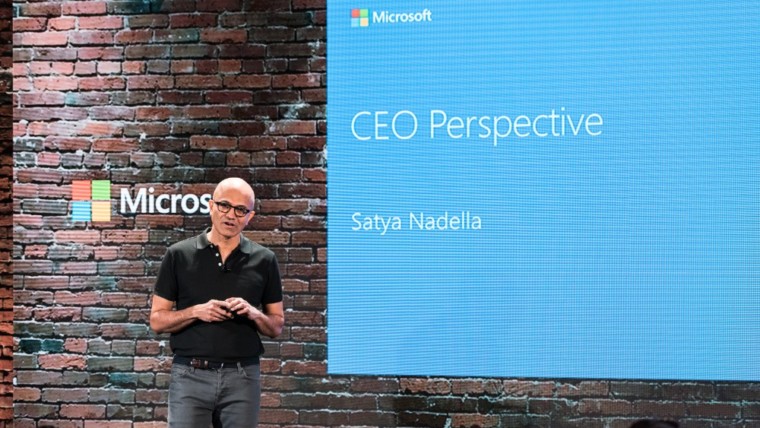Editor’s Note: This is a guest post from Marit Kile Hartshorn, Team Coach at ustwo London, a digital product studio based in London, Malmo, Sydney, and New York. If you’re interested in contributing to the Future of Work, contact us.
Here at ustwo, regular feedback plays a big part in our day-to-day: we approach product design and innovation with a learning mindset. Only by sharing our ideas, prototypes, and products with users early and often, do we get the valuable insight that makes it possible for us to create the best possible experiences.
A learning mindset is also key when it comes to team and personal development. Our teamwork is better when we understand our own and each other’s needs and strengths, so we champion a culture of constructive feedback to help promote self-awareness and understanding of how to work with others. Collaboration is at the very core of how we work, and would not be possible without this understanding and appreciation.
A Better Approach to Providing Feedback
When people think of feedback, there is a tendency to fixate on weaknesses, and while improvement-based feedback is crucial, we start by building on people’s strengths. We encourage showing appreciation for things people do naturally which are meaningful to others, but that they’re not always fully conscious of themselves. Instead of assuming someone knows why we value them, be specific about what you value about them and how their actions positively impact yourself and others. This allows people to get to know and build on their own strengths, and in that way increase their confidence in the team. (I mean, who doesn’t like hearing they’re awesome at their job?) It’s a lot like knowing which features of a product users like the most, so you can make them even better.
Knowing where we can get better is also crucial, and we don’t ignore this. When it comes to this type of feedback, we find that putting the emphasis on what is missing, rather than what is wrong, more motivating. For instance, once you’ve acknowledged and built on something positive you’ve identified in a person, explain that you would like to see more of that behavior, perhaps in a different context. Be supportive and curious, listen, and ask open questions to help people identify for themselves what can be developed. And as much as your inner voice wants to give people your own inevitably brilliant solution, work on yourself to really listen and guide the other person towards their own. This way improvement-based feedback feels more actionable and motivating, and tends to be met with more enthusiasm.
Encouraging Improvement Is Everyone’s Role
At ustwo, feedback is not the domain of managers and superiors, nor is it limited to an annual “performance review,” which inevitably turns the experience of receiving feedback into a high-stakes anxiety-fest. Feedback can come from anyone to anyone, regardless of hierarchy or role, as long as it is relevant, constructive, and given with the motivation to help. Crucially, it is also timely: commenting on something that happened three months back is not that helpful, as the person in question might not even recall the situation, making it much less impactful. Feedback and learning is continuous and should be a part of the day-to-day, and taking time to provide feedback at the earliest opportunity gives it context, making it more meaningful.
Learning how to welcome and provide feedback is something we actively train our people in. We encourage ustwobies to seek and ask for feedback, so that everyone can be specific about what they want feedback on and how it fits in with their personal goals. Investing the time to train our teams and create a shared understanding of the purpose of feedback is really making a difference at ustwo, both on a personal level and in the way we work.
A Format for Feedback: A Star and a Wish
“A Star and a Wish” is one of the first formats we teach, as it focuses on sharing appreciation, discovering strengths, and showing curiosity about each other. I first learned this from my experiences with Kaos Pilots; it is widely used in education generally, and ustwo’s Team Coaches use it regularly with teams and individuals. ustwo also used a version of it in our end-of-year reflection and feedback process for 2015.
It has two parts:
- “What I appreciate most about you is… “
- “What I’d like to see more of from you is…”
Appreciation for a behavior someone already displays sounds like:
What I appreciate most about you is your openness and honesty in the team; you always question things you don’t agree with, or are unsure of. For instance, the question you raised in the daily scrum this morning meant we came up with a much more effective solution than the one we had.
Curiosity for/noticing an existing strength that can be built on sounds like:
What I’d like to see more of from you is you letting this curiosity and honesty out in wider stakeholder meetings, as we can all benefit from the insights you help us gain. As an example, the team could really benefit if you got more involved asking questions in our Thursday morning weekly with the client.
Providing Context for Feedback
Now, having a format is great, but a shared understanding of what purpose feedback serves and what makes feedback constructive is essential. We’ve found that the best feedback is:
- Specific and actionable. Suggestions should be based on observed behavior or fact, not assumed intentions or character judgements.
- Constructive and purposeful. Feedback should be led by curiosity—asking questions and listening—and motivated by a desire to help.
- Timely and in an appropriate setting. Mindset matters, so ask if the person is in the right frame of mind to receive feedback.
Before You Get Started…
Last but not least, before giving someone feedback, determine what your motivation is. Is your feedback coming from a place of wanting to support and help people grow, or are you attempting to change someone to fit better into your worldview? Worse, are you dressing up personal conflict as feedback? Maybe you’ve been hurt by someone’s actions and need to take some time to analyze your reaction before starting a conversation. Being aware of, and addressing any personal agenda or assumptions you might have, is key before giving someone feedback.
So, the next time you get ready to give someone feedback, or even if it’s your first time, ask yourself the following:
- Have you checked your motivation for giving feedback?
- Is the feedback balanced—appreciative and improvement-focused?
- Do you know how/if it fits in with the person’s development goals?
- Is it specific and actionable? Is it constructive and purposeful?
- Have you asked the person if it’s a good time to give them feedback?
The way we see it here at ustwo, feedback is not a tool for criticism or correction. And it’s not an excuse to run around telling people to change because we think they should. It is a tool to help us all see ourselves more clearly, which in turn helps us all learn and grow together. We believe that in the same way we need users’ input to create better products, we need each other’s input to become more effective as teams and team members. So we welcome and encourage feedback from everyone, at every stage of our respective journeys. And if you think about it like that, feedback is in fact a gift.
Images courtesy ustwo








The Evolutionary Edge
Every Link Ever from Our Newsletter
Why Self-Organizing is So Hard
Welcome to the Era of the Empowered Employee
The Power of “What If?” and “Why Not?”
An Adaptive Approach to the Strategic Planning Process
Why Culture/Market Fit Is More Important than Product/Market Fit
Group Decision Making Model: How to Make Better Decisions as a Team